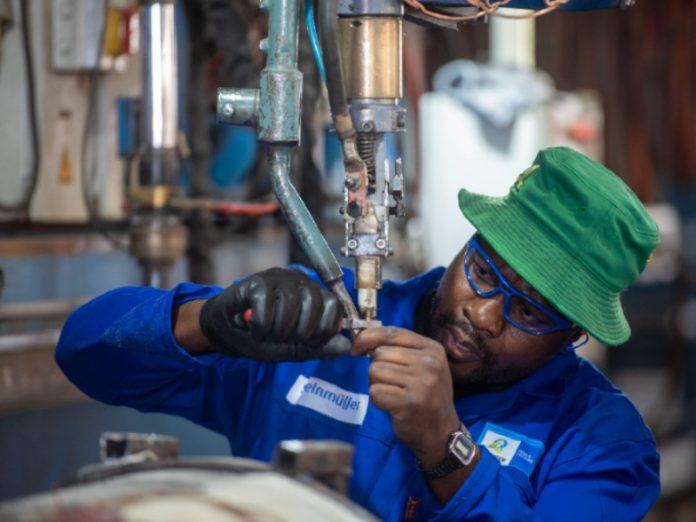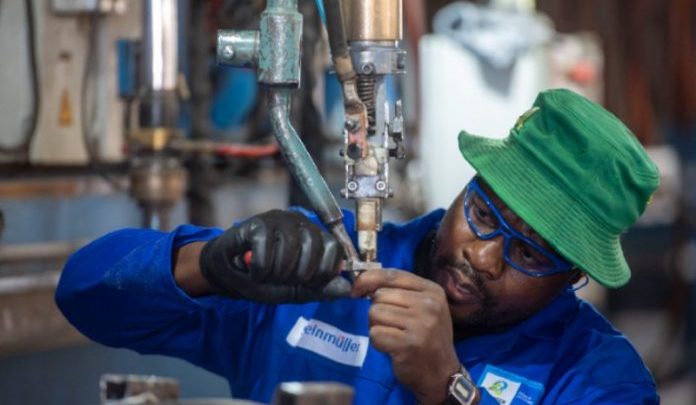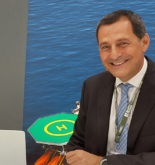ESI Africa spoke with Mpho Muvhango, the Communications Specialist at Steinmüller Africa (Pty) Ltd, in an exclusive interview about the energy market and their sponsorship at Enlit Africa.
Steinmüller Africa offers comprehensive expertise in welding and environmental technology, manufacturing, maintenance, lifetime extension plans and project management.
We are happy to be a solution provider in the power sector, contributing to the reconstruction of our country.
Enlit Africa (the unifying brand for African Utility Week and POWERGEN Africa) invites you to join the conversation 7-9 June 2022 in Cape Town, South Africa.

Which products or services by your company are you most excited about currently?
We are excited about all of our products, particularly our High-Pressure Feedwater Heaters and our Control Valves. We are also excited about our site-based maintenance services as they work hand in hand with our engineering department as well as our manufacturing workshop and have proven to be beneficial in the power industry. With our track record of previous maintenance projects, we are happy to be a solution provider in the power sector contributing to the reconstruction of our country.
What makes your company a leader in this field?
We are leaders in this field because we provide local solutions with local expertise at an internationally competitive price. Our HP Heaters are locally designed and manufactured to the highest international quality standards. We are proud of our induction pipe bending machine at our Pretoria Workshop which is the only one of its kind in Africa.
Any specific projects that have made a huge difference that you can share?
Apart from business as usual, where we manufacture and maintain boilers and power plant components to ensure their efficiency in a plant life cycle, we also give back to the community by assisting in rebuilding a learning culture in the areas where our main business is located. We recently refurbished classrooms at a school called Vukanini Primary School in Bethal Mpumalanga. The project is part of Steinmüller Africa’s corporate social investment. Steinmüller is committed to investing in the youth and leaders of tomorrow.
What, in your opinion, are the biggest challenges that the energy industry is facing currently?
The biggest challenges are the long-term lack of maintenance, which has led to loadshedding, and insufficient research on providing affordable and clean energy in a way that would make economic sense for the country through the use of the lowest cost available resources and infrastructure.
What is the most important conversation we should be having in this sector?
Affordable and reliable energy – South Africa is a third world country in dire need of affordable and clean energy to rebuild its economy and develop local employment opportunities for our ever-increasing young population. South Africa is not in the top 20 energy consumption countries in the world, according to Statista, and South Africa is only the 7th largest coal producer in the world, according to the IEA. South Africa should allow the countries that consume the most energy to focus on reducing their emissions and focus on using our natural resources for the economic benefit of our people while utilising well-proven technologies to clean up the emissions.
Why do you believe in Africa’s energy sector?
In any part of the world, it is important for any continent to provide their own solutions and acquire skills to sustain industry-related infrastructure. We believe in our African power sector because we have acquired the expertise and form part of the solution to ensuring the efficiency of a plant life cycle in our energy sector.
Which of the 5 Ds do you believe is the most important, and why?
They are equally important. The 5 Ds were terms developed in Germany to reignite the Energy Transformation “Energiewende” which has lost momentum. Germany, as the 4th largest economy in the world, is seen as a powerful role model in the energy transformation space.
Democratisation: Power (as in energy, specifically electrical power) should be provided to the people to improve their conditions of living)
Decentralisation: The generation of electrical power should be decentralised to allow private industry to compete in the power generation and distribution industries to increase competition and reduce power generation and distribution costs to the end-user.
Deregulation: This aspect should allow small providers of off-grid electrical power in remote areas to provide this power to local users, without having to utilise the national grid.
Digitalisation: This cannot be implemented if the majority of people do not have access to cheap and reliable sources of electrical power.
Decarbonisation: On an international scale, decarbonisation should be practised by the largest users of energy, who have had the benefit of decades of the utilisation of cheap coal-based power generation to develop their economies. The third world economies, which are in dire need of development, must be allowed to utilise their local resources to redevelop their economies, with the added advantage of access to the first world emissions reduction technologies which are now becoming redundant by the conversion of first world economies from fossil-fueled power to renewable power.
Which countries in Africa is Steinmüller Africa most interested in at the moment?
We are interested in all African countries that can use our products and services in the mining, power, petrochemical and milling sectors, but particularly in South Africa – it being our local market.
What excites you about this industry?
We are excited to be able to provide solutions to some of the issues in the power sector and continually research on developing technology that can be applied to improve solutions in the power industry.
You are a regular exhibitor at Enlit Africa. What makes you return to the event every year?
The event allows us to touch base with our existing customers and other industry players, as well as make new connections with potential customers.
What is your most important takeaway to attendees at Enlit Africa?
Fossil fuel-based energy generation is the third-lowest costing source of electrical energy, behind nuclear and hydropower generation and must be embraced by every South African in order to rebuild our economy and create much-needed jobs. Fossil fuel-based electricity generation is not dirty and can be cleaned up by using well-proven technologies which are locally available.
Source: ESI Africa






